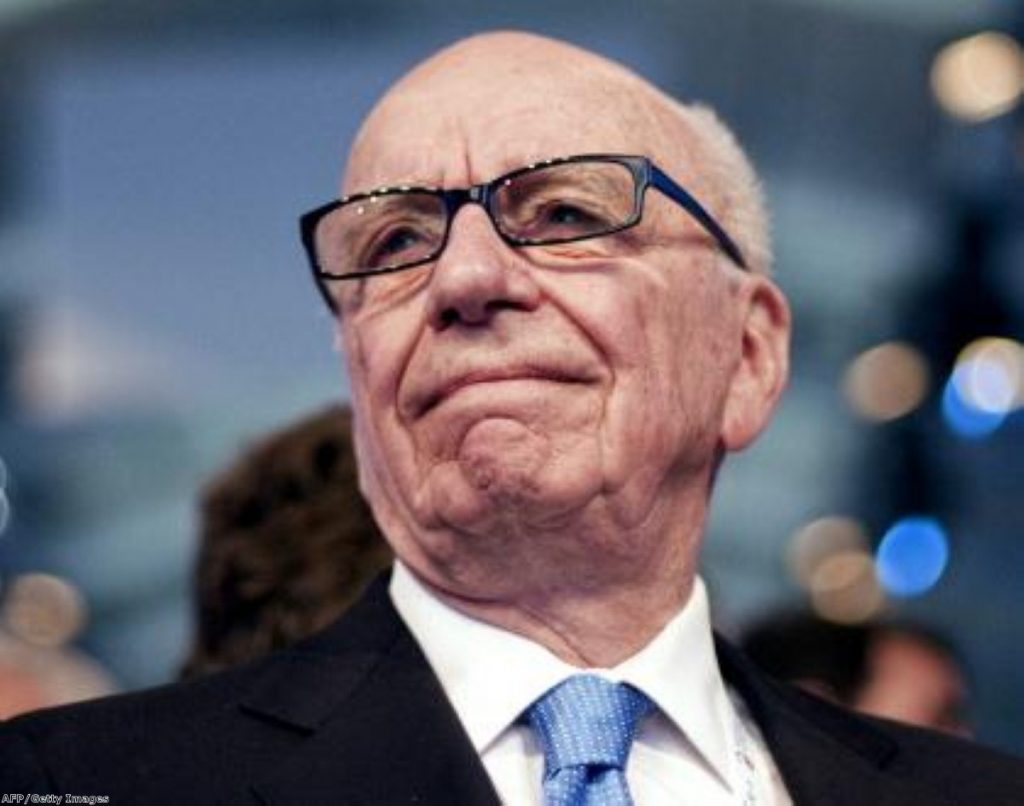The week in politics: Fall of the House of Murdoch
It was a peculiarly British scandal: motivated by curtain twitching, upsetting because it violated privacy.
By Ian Dunt Follow @IanDunt
It's like waking up from some blissful dream and then finding out it's all true. Murdoch's power crumbling? Check. Coulson sitting in jail? Check. Cameron with that unmistakeable look of fear in his eyes? Check.
The after-effects of the phone-hacking scandal are everywhere.


Rupert Murdoch, for years the smiling baddie of the Bond movie that is real life, is finally on the ropes. He has had to close the best-selling Sunday newspaper in the English speaking world. His dreams of full BSkyB ownership are dwindling to nothing. His God-like status among party leaders is melting away to obscurity. His son James, a cloned version of his father complete with push-it-and-I-talk anti-BBC phrases, is slowly coming into the scandal spotlight, as the buffer zone between him and calamity, sometimes referred to as Rebekah Brooks, disintegrates away.
David Cameron, for over a year now the seemingly unflappable head of a small, unduly self-conscious island off the European mainland, has faced his first major crisis as prime minister and come away looking decidedly flappable. It was his first test and he stumbled badly. Ed Miliband, who always treats success as if Jeremy Beadle is about to appear from around the corner, ran rings around Cameron at PMQs. The PM has looked like he's two steps behind ever since. Hesitant on BSkyB, badly miscommunicating on Brooks and appalling in his efforts to wipe the memory that is Coulson off his shoe: it's been a seriously bad week for a usually confident prime minister.
He just didn't see it coming. No-one could have predicted that Ed Miliband was going to have a good week, especially when the video of him parroting the same point on the teachers' strike over and over again hit the airwaves. His performance, somewhere between a broken children's toy and a public service broadcast, was career-destroying. And yet there he stands, his most successful week as Labour leader behind him. He was decisive, gutsy and resolute throughout and his political capital is miles higher than it was last week.
The Press Complaints Commission (PCC), basically the regulatory equivalent of that kid you used to beat up in the toilets at school, is lying in pieces on the floor. Nick Clegg, Miliband and Cameron dragged it down the corridor, roughed it up a bit and then told it to prepare for the worst. The worst, of course, is painful and inglorious death.
And finally, the police. Coppers have never enjoyed a good reputation among sensible, god-fearing Englishmen, so it was doubly painful for them to suddenly find themselves in the middle of a crisis of no less magnitude than the Stephen Lawrence inquiry. The subsequent spanking coming their way may be even more epic this time, as allegations fly of a high-level conspiracy in the original phone-hacking investigations and substantial pay offs from News of the World hacks.
As the dust settled we were reminded that this was ultimately a serious, even tragic, matter. Journalists are now as popular as lawyers, estate agents and politicians, which has some unfortunate ramifications for yours truly. Cameron basically made it clear that the era of self-regulation was over, but we'll need to sit through a media ethics inquiry, due to start this summer, before we can get to that inevitable conclusion. Hundreds of journalists at the News of the World, the vast majority of whom have never hacked a phone in their life, are out of work (although sources suggest they were drinking pints of champagne on the company card Thursday night).
Thousands of families have had to endure the violation of knowing that a hack was listening down the phone as they went through the darkest moments of their life. For once, the expressions of disgust and horror were genuine from all concerned.
It was a uniquely British scandal. It was motivated by our curtain-twitching instincts. And the strength of the reaction was fuelled by our deeply-rooted respect for privacy. It says more about us than we care to admit.
The after-effects have pleasingly tilted the balance of power in Britain away from forces which had hitherto seemed near-omnipotent. But the events that took place to get us here haven't been pleasing at all. For all the satisfaction of a frenzied political crisis, this was British journalism's darkest hour.

